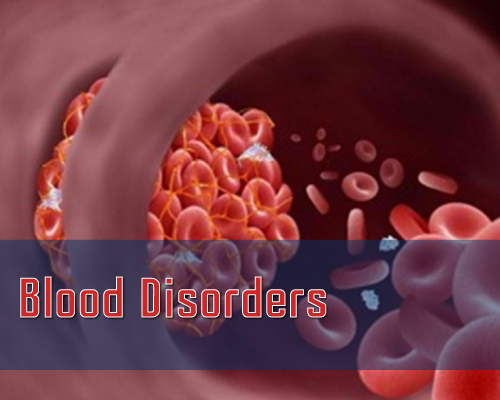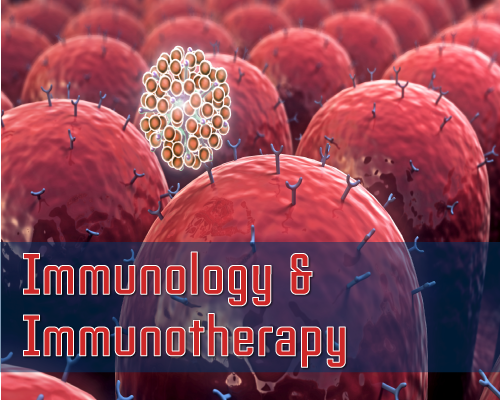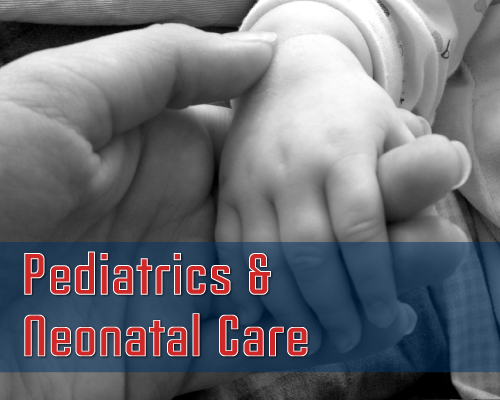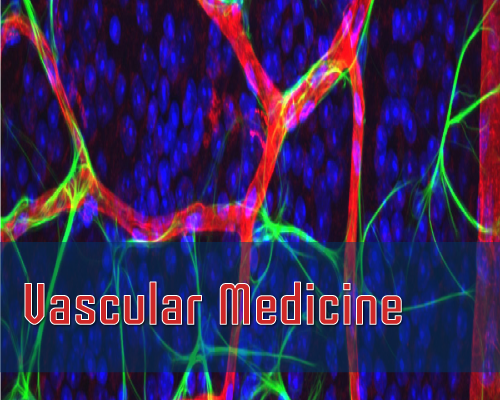Prabhakaran Gopalakrishnan1*, Smita Subramaniam2, Asha Thomas3 and Andrey Manov4
Department of Medicine, JPS Health Network, 1500 S Main St, Fort Worth, TX 76104, USA
*Address for Correspondence: Prabhakaran Gopalakrishnan, Department of Medicine, JPS Health Network, 1500 S Main St, Fort Worth, TX 76104, USA
Dates: Submitted: 07 October, 2015; Approved: 18 October, 2015; Published: 22 October, 2015
Citation this article: Gopalakrishnan P, Subramaniam S, Thomas A, Manov A. Adult Onset Still's Disease Presenting as Recurrent Fever with ARDS: A Case Report. Int J Case Rep Short Rev. 2015;1(1): 001-003
Copyright: © 2015 Gopalakrishnan P, et al. This is an open access article distributed under the Creative Commons Attribution License, which permits unrestricted use, distribution, and reproduction in any medium, provided the original work is properly cited.
Keywords: Adult onset still's disease; Fever of unknown origin; Recurrent fever; Acute respiratory distress syndrome; Yamaguchi criteria
Abstract
Adult onset Still's disease is a rare inflammatory disorder characterized by daily spiking fevers, arthritis and an evanescent rash, typically affecting young adults. We report a case of Adult onset Still's disease presenting as recurrent fever complicated by acute respiratory distress syndrome, an uncommon presentation which has been infrequently described in literature.
A 33 year old Hispanic male presented with recurrent daily fevers, sore throat and lymphadenopathy. Comprehensive diagnostic evaluation including lymph node biopsy and bone marrow biopsy was negative for infectious causes. His clinical course was complicated by acute respiratory distress syndrome. Adult onset Still's disease was diagnosed based on clinical and laboratory findings. Patient was started on steroids and responded well with resolution of his respiratory failure and fever.
Adult onset Still's disease is a rare febrile disorder primarily affecting young patients with varied presentations. Diagnosis is clinical and could be easily missed unless the evaluating physician is aware of both the typical as well as atypical presentations such as acute respiratory distress syndrome, as was found in our patient. Delayed diagnosis or misdiagnosis may lead to recurrent and prolonged hospitalizations in addition to costly and potentially harmful diagnostic workup and therapeutic interventions.
Abbreviations
FUO: Fever of unknown origin; AOSD: Adult onset Still's Disease; ARDS: Acute respiratory distress syndrome; ESR: Erythrocyte sedimentation rate; ED: Emergency department; HR: Heart rate; RR: Respiratory rate; BP: Blood Pressure; SpO2: Peripheral capillary oxygen saturation; WBC: White blood cell; MCV: Mean corpuscular volume; AST: Aspartate transaminase; ALT: Alanine transaminase; SIRS: Systemic inflammatory response syndrome; CT: Computerized Tomography; CSF: Cerebrospinal fluid; TB: Tuberculosis; RPR: Rapid plasma reagin; RF: Rheumatoid factor; ANA: Anti-nuclear antibody; ds-DNA: Double stranded DNA; CMV: Cytomegalovirus
Introduction
Diagnostic and therapeutic advances notwithstanding, Fever of unknown origin (FUO) continues to represent a significant diagnostic challenge to clinicians [1]. Among the classic FUO categories of Infectious, Noninfectious inflammatory (Rheumatologic), Neoplastic and Miscellaneous, Infectious etiologies are on the wane [1,2]. A perplexing subtype of FUO is recurrent FUO (also called episodic or periodic fever). Originally mentioned in a case series by Reimann3 in 1948, Periodic fever or Recurrent FUO is defined as recurrent febrile episodes with fever free intervals (minimum interval variously described as 2 days to 2 weeks) and apparent remission of the underlying disease [4]. Recurrent fever is a strong predictor for failure to diagnose. Noninfectious inflammatory diseases such as Still's disease, BehÇet's disease, and relapsing polychondritis constitute 9 to 18% of recurrent FUO [4,5].
Adult onset Still's disease (AOSD) is an uncommon non-infectious inflammatory disorder characterized by quotidian (daily) fevers, arthritis and an evanescent rash, typically affecting young adults from ages 16 to 35 years. Diagnosis is clinical, based on the widely used Yamaguchi criteria - Major: Fever = 39°C (102.2°F) lasting = 1 week, arthralgias or arthritis lasting = 2 weeks, salmon-colored skin rash during febrile episodes and leukocytosis of = 10,000/ μL with = 80 % granulocytes; Minor: sore throat, lymphadenopathy, hepatomegaly or splenomegaly, abnormal liver function studies and negative tests for antinuclear antibody and rheumatoid factor. Diagnosis requires minimum of five criteria with at least two of them being major criteria [6]. Common laboratory findings in AOSD include neutrophilic leukocytosis, very high ESR and C-reactive protein, anemia of chronic disease, elevated ferritin levels (higher than five times the upper limits of normal) and hypoalbuminemia [6,7]. We present a case of AOSD presenting as recurrent fever complicated by acute respiratory distress syndrome (ARDS), an uncommon presentation of AOSD which has rarely been reported in literature.
Case Presentation
Our patient, a 33 year old Hispanic male, presented with 1 month history of daily fever, neck pain and sore throat and a rash on his arms. During an ED visit, 3 months earlier, for right neck swelling and cough, he was diagnosed with upper respiratory tract infection and cervical lymphadenopathy. He had 10 pack year smoking history and denied alcohol or drug abuse. On exam, he had a temperature of 102.3°F, HR 115, RR 15, BP 88/ 47 mm Hg and SpO2 97% on room air. Neck was supple with bilateral nontender cervical lymphadenopathy. Other exam findings included nontender splenomegaly and mild maculo-papular erythematous rash on chest and arms.
Lab values were significant for a WBC count of 14.6 (84.8 % polymorphs), hemoglobin 10.4 g/dl, hematocrit 32, MCV 80, sodium 131, AST 93, ALT 33 and albumin 2.5. His procalcitonin was 0.6. Initial diagnosis was SIRS (Systemic inflammatory response syndrome), with likely sepsis from meningitis. Other infectious and non-infectious etiologies such as lymphoma were considered. CT scan showed enlarged cervical and mediastinal lymphadenopathy. Anemia work up showed low transferrin, normal transferrin saturation but significantly elevated ferritin of 23,350. CSF analysis showed WBC of 21 with 95% lymphocytes, normal glucose and normal protein. ESR was elevated at 100. TB (T Spot), RPR, RF, ANA and ds-DNA were negative. Infectious workup was negative for histoplasma urine antigen, parvovirus B19, Borrelia, Rickettsia, Bartonella, Schistosoma and CMV serologies. Bacterial, Fungal and Mycobacterial cultures from blood, urine, CSF and bone marrow were negative. Patient underwent left sided cervical lymph node excisional biopsy. Patient clinically improved and was discharged with follow up for lymph node biopsy and bone marrow biopsy results.
Patient presented two weeks later with recurrent fever, SIRS and hemoglobin of 8. Bone marrow biopsy showed hypercellular marrow without evidence of neoplasm. Lymph Node biopsy showed follicular lymphoid hyperplasia. Presumptive diagnosis of adult onset Still's disease was entertained for Fever of Unknown Origin with workup negative for infectious and neoplastic etiologies. Patient's presentation with lymphadenopathy, arthralgia, pyrexia, sore throat, leukocytosis, elevated ferritin and splenomegaly supported the diagnosis of adult onset Still's disease.
Patient subsequently developed respiratory distress and was placed on mechanical ventilation for ARDS. Bronchoscopy with lavage was negative for malignancy and infections. Echocardiogram showed ejection fraction of 55% and Transesophageal Echocardiogram was negative for any vegetations. He was started on intravenous methylprednisolone 1 gm daily for three days followed by oral prednisone. He responded well with successful extubation and was later discharged on slow tapering dose of oral prednisone. Patient remained afebrile and ferritin decreased from more than 23,000 to 4,000. Patient follows up regularly in our rheumatology clinic and is doing well. The interesting feature in our patient was ARDS, which has been infrequently described in literature in Still's disease.
Discussion
Adult onset Still's disease is a clinical diagnosis. Our patient had at least 3 major criteria and 3 minor criteria for AOSD. While recurrent febrile episodes with arthralgia and rash is the typical presentation, less common AOSD manifestations include pericarditis, valvular abnormalities, thrombotic thrombocytopenic purpura, interstitial nephritis and neurological manifestations like cranial nerve palsies, seizures and aseptic meningoencephalitis. Pulmonary manifestations are infrequent and include pleurisy, cryptogenic organizing pneumonia [8], diffuse alveolar haemorrhage [9] and ARDS. Rare instances of ARDS have been described in literature in relation to AOSD [10-12] as well as treatment of AOSD with anakinra [13]. Treatment options for AOSD include nonsteroidal anti-inflammatory drugs, systemic corticosteroids and traditional immunosuppressants with methotrexate being the most common [7]. Anakinra [14] is the primary biological agent used in AOSD, while other agents such as infliximab, etanercept, tocilizumab and canakinumab have also been used. Alternate regimens include leflunomide, cyclosporine, intravenous immune globulin, azathioprine, cyclophosphamide, tacrolimus and gold. Periodic evaluation for disease activity and adverse effects of treatment as well as monitoring of disease markers is needed.
Conclusion
Advances in radiological and laboratory investigations notwithstanding, fever of unknown origin continues to represent a significant diagnostic challenge to clinicians. Our patient had multiple ED visits and hospitalizations with extensive workup prior to being diagnosed with AOSD based on Yamaguchi criteria and negative workup for infectious and neoplastic etiologies. His clinical course was complicated by ARDS which is an unusual presentation and responded well to steroids. This case reflects the importance of considering AOSD in differential diagnosis of recurrent fever, especially in young patients and the need to recognize ARDS as a potential but rare complication.
Consent
Written informed consent was obtained from the patient for publication of this case report and any accompanying images. A copy of the written consent is available for review by the Editor-in-Chief of this journal.
Authors' contributions
SS summarized the hospital course. PG summarized the diagnostic workup and reviewed literature. AT reviewed AOSD management. PG, SS, and AM contributed in writing the manuscript. All authors read and approved the final manuscript.
References
- Vanderschueren S, Knockaert D, Adriaenssens T, Demey W, Durnez A, et al. From prolonged febrile illness to fever of unknown origin: the challenge continues. Arch Intern Med. 2003;163(9):1033-41.
- Knockaert DC, Vanneste LJ, Vanneste SB, Bobbaers HJ. Fever of unknown origin in the 1980s. An update of the diagnostic spectrum. Arch Intern Med. 1992;152(1):51-5.
- Reimann HA. Periodic disease; a probable syndrome including periodic fever, benign paroxysmal peritonitis, cyclic neutropenia and intermittent arthralgia. J Am Med Assoc. 1948;136(4):239-44.
- Knockaert DC. Recurrent fevers of unknown origin. Infect Dis Clin North Am. 2007;21(4):1189-211.
- Knockaert DC, Vanneste LJ, Bobbaers HJ. Recurrent or episodic fever of unknown origin. Review of 45 cases and survey of the literature. Medicine (Baltimore). 1993;72(3):184-96.
- Yamaguchi M1, Ohta A, Tsunematsu T, Kasukawa R, Mizushima Y, et al. Preliminary criteria for classification of adult Still's disease. J Rheumatol. 1992; 19(3):424-30.
- Kontzias A, Efthimiou P. Adult-onset Still's disease: pathogenesis, clinical manifestations and therapeutic advances. Drugs. 2008; 68(3):319-37.
- Sato H, Yokoe I, Nishio S, Onishi T, Takao T, et al. A case of Adult onset Still's disease complicated with cryptogenic organizing pneumonia. Intern Med 2011; 50(3):247-51.
- Sari I1, Birlik M, Binicier O, Akar S, Yilmaz E, et al. A case of adult onset still's disease complicated with diffuse alveolar haemorrhage. J Korean Med Sci. 2009; 24: 155-157.
- Dua AB, Manadan AM, Case JP. Adult Onset Still's Disease Presenting with Acute Respiratory Distress Syndrome: Case Report and Review of the Literature. Open Rheumatol J. 2013; 7:125-8.
- Guignard S, Dien G, Dougados M. Severe systemic inflammatory response syndrome in a patient with adult onset Still's disease treated with the anti-IL1 drug anakinra: a case report. Clin Exp Rheumatol. 2007; 25(5):758-759.
- Cheema GS, Quismorio FP Jr. Pulmonary involvement in adult-onset Still's disease. Curr Opin Pulm Med. 1999; 5(5):305-9.
- Hirohata S, Kamoshita H, Taketani T, Maeda S. Adult Still's disease complicated with adult respiratory distress. Arch Intern Med. 1986; 146(12):2409-2410.
- KÖtter I, Wacker A, Koch S, Henes J, Richter C, et al. Anakinra in patients with treatment resistant adult onset still's disease four case reports with serial cytokine measurements and a review of the literature. Semin Arthritis Rheum. 2007; 37:189-197.
Authors submit all Proposals and manuscripts via Electronic Form!




























